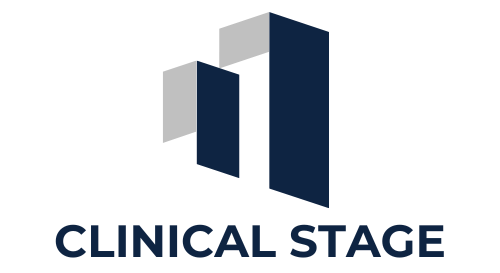The Impact of Personalized Medicine on Drug Development
Personalized medicine, a transformative approach in healthcare, has significantly influenced the landscape of drug development. Unlike traditional one-size-fits-all methods, personalized medicine tailors treatment plans based on individual patient characteristics, including genetic, environmental, and lifestyle factors. This innovation marks a paradigm shift in modern medicine, promising more effective and targeted therapies.
The importance of personalized medicine in drug development cannot be overstated. It offers the potential to increase treatment efficacy, reduce adverse drug reactions, and improve overall patient outcomes. This blog explores the various facets of personalized medicine, including its foundational principles, the role of genomics and biomarkers, personalized clinical trial design, regulatory and ethical considerations, challenges, and case studies highlighting its success. Additionally, we will look at the future directions of personalized medicine, including emerging technologies and challenges.
Understanding Personalized Medicine
Definition and Key Principles of Personalized Medicine
Personalized medicine, also known as precision medicine, involves tailoring medical treatment to the individual characteristics of each patient. This approach considers the unique genetic makeup, biomarker expression, and personal history of the patient, allowing healthcare providers to develop more precise and effective treatment plans. The key principles of personalized medicine include the identification of patient-specific factors that influence disease and response to treatment, the use of targeted therapies, and the integration of data from various sources to inform clinical decisions.
Historical Context and Evolution of Personalized Medicine
The concept of personalized medicine is not new, but its modern evolution is closely tied to advances in genomics and biotechnology. The completion of the Human Genome Project in 2003 marked a significant milestone, providing a comprehensive map of the human genome and opening new avenues for understanding genetic contributions to disease. This breakthrough enabled the identification of genetic variations that influence drug metabolism and efficacy, leading to the development of pharmacogenomics—the study of how genes affect a person's response to drugs.
Over the years, personalized medicine has expanded beyond genetics to include proteomics, metabolomics, and other "omics" technologies. These advancements have facilitated the development of targeted therapies and companion diagnostics, which are essential components of personalized treatment strategies.
Benefits of Personalized Treatment Approaches
Personalized medicine offers several benefits over traditional approaches. Firstly, it increases the likelihood of treatment success by targeting therapies to patients most likely to benefit from them. This reduces the trial-and-error approach often associated with conventional treatments, leading to more efficient and effective care. Secondly, personalized medicine can reduce the incidence of adverse drug reactions, which are a significant cause of morbidity and mortality. By tailoring treatments to individual genetic profiles, healthcare providers can minimize the risk of adverse effects. Lastly, personalized medicine empowers patients by involving them in their care decisions, fostering a more collaborative doctor-patient relationship.
Role of Genomics and Biomarkers
Use of Genetic Information in Personalized Medicine
Genomics, the study of an individual's complete set of genes, plays a pivotal role in personalized medicine. Genetic information can reveal variations in genes that affect disease susceptibility, progression, and response to treatment. For example, mutations in the BRCA1 and BRCA2 genes are associated with an increased risk of breast and ovarian cancers. Knowing a patient's genetic status can guide screening, preventive measures, and treatment decisions, such as opting for specific chemotherapeutic agents or preventive surgeries.
Identifying and Validating Biomarkers for Targeted Treatments
Biomarkers are measurable indicators of biological processes, conditions, or diseases. In personalized medicine, biomarkers are used to identify patients who are likely to respond to specific therapies. For instance, the presence of the HER2 protein on the surface of breast cancer cells indicates that the patient may benefit from HER2-targeted therapies, such as trastuzumab. The process of identifying and validating biomarkers involves rigorous testing and clinical trials to ensure their accuracy and reliability in predicting treatment responses.
Case Studies of Biomarker-Driven Drug Development
Several case studies highlight the success of biomarker-driven drug development. One notable example is the use of the BRAF V600E mutation as a biomarker in melanoma. Patients with this mutation can be treated with BRAF inhibitors, which specifically target the mutated protein and inhibit tumor growth. Another example is the use of PD-L1 expression as a biomarker for selecting patients with non-small cell lung cancer for treatment with immune checkpoint inhibitors. These cases demonstrate the potential of personalized medicine to deliver targeted and effective treatments based on specific molecular characteristics.
Notable Labs: Transforming Drug Development with Personalized Medicine
Notable Labs is at the forefront of the personalized medicine revolution, reshaping the landscape of drug development. Personalized medicine, which customizes treatment plans based on individual genetic, environmental, and lifestyle factors, is transforming healthcare from a one-size-fits-all approach to a more targeted and effective strategy. This paradigm shift is crucial in modern medicine, offering the potential to enhance treatment efficacy, minimize adverse drug reactions, and improve patient outcomes.
Notable Labs harnesses the power of genomics and biomarkers to identify patient-specific factors that influence disease and treatment responses. By leveraging advanced technologies and innovative methodologies, the company is pioneering the development of targeted therapies that are tailored to the unique profiles of individual patients. This personalized approach not only increases the likelihood of successful treatment outcomes but also reduces the trial-and-error nature of traditional drug development.
As personalized medicine continues to evolve, Notable Labs is at the cutting edge of integrating emerging trends and technologies, such as AI and machine learning, into drug personalization. The company's commitment to advancing personalized medicine is reflected in its focus on developing targeted therapies and companion diagnostics, ensuring that patients receive the most effective and precise treatments.
In a field that is rapidly advancing, Notable Labs stands out for its dedication to improving patient care through personalized medicine. By addressing technical, ethical, and access-related challenges, the company is working to make personalized treatments more accessible and equitable. With a clear vision for the future, Notable Labs is poised to lead the charge in transforming healthcare through the power of personalized medicine.
Personalized Clinical Trial Design
Tailoring Clinical Trials to Individual Patient Profiles
Traditional clinical trials often involve large, heterogeneous patient populations, making it challenging to discern the effects of a treatment on specific subgroups. Personalized clinical trial design seeks to address this issue by tailoring trials to individual patient profiles. This approach involves stratifying patients based on genetic, molecular, or clinical characteristics and testing treatments on more homogenous groups. This can lead to more accurate assessments of a drug's efficacy and safety.
Adaptive Trial Designs and Precision Medicine
Adaptive trial designs are a key component of personalized clinical trials. These designs allow for modifications to the trial protocol based on interim results. For example, if a particular subgroup of patients shows a favorable response to a treatment, the trial can be adapted to focus more on this group. This flexibility can expedite the development of effective therapies and reduce the time and cost associated with clinical trials.
Examples of Personalized Clinical Trial Methodologies
One example of personalized clinical trial methodologies is the basket trial design. In a basket trial, patients with different types of cancer but the same genetic mutation are treated with a targeted therapy. This approach allows researchers to assess the efficacy of the treatment across multiple cancer types simultaneously. Another example is the umbrella trial design, where patients with the same type of cancer but different genetic mutations are treated with different targeted therapies within the same trial. These innovative designs illustrate how personalized medicine can optimize clinical trials and improve treatment outcomes.
Regulatory and Ethical Considerations
Regulatory Frameworks for Personalized Medicine
The regulatory landscape for personalized medicine is complex and evolving. Regulatory agencies, such as the U.S. Food and Drug Administration (FDA), play a crucial role in ensuring the safety and efficacy of personalized treatments. The FDA has established specific guidelines for the approval of targeted therapies and companion diagnostics. These guidelines emphasize the need for robust clinical evidence to support the use of personalized treatments and the importance of post-market surveillance to monitor long-term safety.
Ethical Issues in Personalized Treatment Approaches
Personalized medicine raises several ethical issues, including concerns about privacy, consent, and access to care. The use of genetic information in healthcare requires stringent measures to protect patient privacy and prevent discrimination based on genetic data. Additionally, obtaining informed consent is crucial, as patients must fully understand the implications of genetic testing and personalized treatments. There is also the issue of equitable access to personalized medicine, as these treatments can be costly and may not be covered by insurance.
Ensuring Informed Consent and Patient Autonomy
Informed consent is a fundamental ethical principle in personalized medicine. Patients must be provided with clear and comprehensive information about the risks, benefits, and limitations of personalized treatments. This includes explaining the potential outcomes of genetic testing, the implications of test results, and the possible impact on family members. Ensuring patient autonomy is also critical, as patients should have the right to make informed decisions about their care, including the choice to decline certain tests or treatments.
Challenges in Implementing Personalized Medicine
Technical and Scientific Challenges in Personalization
Implementing personalized medicine poses several technical and scientific challenges. One major challenge is the complexity of interpreting genetic data and translating it into actionable clinical information. The human genome is vast and contains numerous genetic variations, many of which have unknown or unclear significance. Another challenge is the development of reliable and accurate biomarkers, which requires extensive research and validation. Additionally, there is the need for advanced bioinformatics tools to analyze and integrate data from various sources, such as genomics, proteomics, and electronic health records.
Managing Costs and Resource Allocation
The cost of personalized medicine can be prohibitive, both for healthcare systems and patients. Developing targeted therapies and companion diagnostics is resource-intensive, requiring significant investment in research and development. Moreover, the implementation of personalized treatment approaches often involves expensive genetic testing and specialized laboratory services. Managing these costs while ensuring that personalized medicine is accessible to all patients is a significant challenge for healthcare providers and policymakers.
Addressing Disparities in Access to Personalized Treatments
Disparities in access to personalized medicine are a critical issue. Factors such as socioeconomic status, geographic location, and healthcare infrastructure can impact a patient's ability to access personalized treatments. For example, patients in rural or underserved areas may have limited access to advanced diagnostic technologies or specialized healthcare providers. Additionally, the high cost of personalized treatments may be a barrier for patients without adequate insurance coverage. Addressing these disparities requires concerted efforts to improve healthcare equity and ensure that all patients can benefit from personalized medicine.
Case Studies and Success Stories
Case Study 1: Personalized Oncology Treatments
Personalized oncology is one of the most advanced areas of personalized medicine. A prime example is the use of targeted therapies in breast cancer treatment. Patients with HER2-positive breast cancer, a subtype characterized by the overexpression of the HER2 protein, can be treated with HER2-targeted therapies such as trastuzumab. These therapies specifically target the HER2 protein, inhibiting cancer cell growth and improving patient outcomes. The success of HER2-targeted therapies has been instrumental in establishing personalized medicine as a viable approach in oncology.
Case Study 2: Pharmacogenomics in Cardiovascular Disease
Pharmacogenomics, the study of how genetic variations influence drug response, has made significant strides in cardiovascular disease treatment. For instance, the enzyme CYP2C19 metabolizes the antiplatelet drug clopidogrel. Genetic variations in the CYP2C19 gene can affect how patients respond to clopidogrel, influencing its efficacy and the risk of adverse events. Patients with certain genetic variants may require alternative antiplatelet therapies or adjusted dosages. This example illustrates the importance of pharmacogenomics in optimizing drug therapy and minimizing the risk of adverse effects.
Case Study 3: Tailored Therapies for Rare Genetic Disorders
Personalized medicine has also shown promise in the treatment of rare genetic disorders. One notable example is cystic fibrosis (CF), a genetic disorder caused by mutations in the CFTR gene. The development of CFTR modulators, a class of drugs that target specific mutations in the CFTR gene, has revolutionized the treatment of CF. These modulators can improve lung function and quality of life for patients with CF, particularly those with specific genetic mutations. This case demonstrates the potential of personalized medicine to provide targeted therapies for rare and previously untreatable conditions.
Future Directions in Personalized Medicine
Emerging Trends and Technologies in Personalized Medicine
The future of personalized medicine is closely tied to emerging trends and technologies. One such trend is the integration of multi-omics data, which includes genomics, proteomics, metabolomics, and other omics technologies. By combining data from multiple sources, researchers can gain a more comprehensive understanding of disease mechanisms and identify new therapeutic targets. Another emerging technology is single-cell sequencing, which allows for the analysis of gene expression at the individual cell level. This technology has the potential to uncover previously unknown aspects of disease biology and guide the development of more precise treatments.
Role of AI and Machine Learning in Drug Personalization
Artificial intelligence (AI) and machine learning are playing an increasingly important role in personalized medicine. These technologies can analyze large and complex datasets, identify patterns, and make predictions about disease outcomes and treatment responses. For example, AI algorithms can predict which patients are most likely to benefit from a particular therapy based on their genetic and clinical profiles. Additionally, machine learning can be used to identify new biomarkers and drug targets, accelerating the drug development process. The integration of AI and machine learning into personalized medicine holds great promise for advancing the field and improving patient care.
Future Challenges and Opportunities in Personalized Treatment
While personalized medicine offers many opportunities, it also presents several challenges that must be addressed. One major challenge is the need for robust data infrastructure and data sharing frameworks to support the integration and analysis of diverse datasets. Another challenge is the ethical and regulatory considerations surrounding the use of genetic and other personal data in healthcare. Additionally, there is a need for continued research and investment in the development of targeted therapies and companion diagnostics.
Despite these challenges, the future of personalized medicine is bright. Advances in technology, data science, and our understanding of disease biology will continue to drive the field forward. As personalized medicine becomes more integrated into clinical practice, it has the potential to transform healthcare, offering more precise and effective treatments for patients.
Conclusion
In conclusion, personalized medicine has had a profound impact on drug development, offering new opportunities for targeted and effective treatments. The integration of genomics, biomarkers, and personalized clinical trial designs has led to the development of therapies that are tailored to individual patient profiles. While there are challenges to be addressed, such as technical, ethical, and cost-related issues, the benefits of personalized medicine are clear. It has the potential to improve patient outcomes, reduce adverse drug reactions, and empower patients in their healthcare decisions.
As we look to the future, the continued advancement of personalized medicine will require collaboration between researchers, healthcare providers, regulatory agencies, and patients. The integration of emerging technologies, such as AI and machine learning, will play a crucial role in overcoming current challenges and advancing the field. Ultimately, personalized medicine represents a new frontier in healthcare, offering the promise of more precise, effective, and individualized treatments for all patients.










